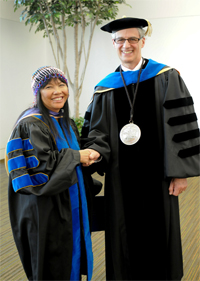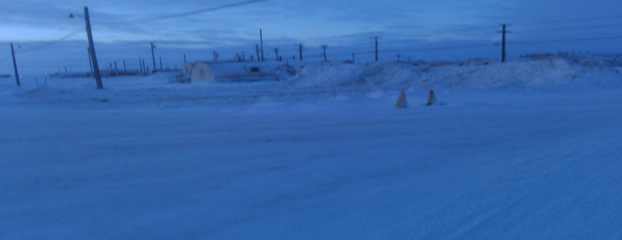
It began with the Elders and Youth conference, an inspirational event honoring the wisdom of elders while showcasing and empowering the youth. I came away with a strong sense that the youth are ready and capable to learn and to lead. The arts and culture event is always special and like every other one, I came away with my hands full of treasures and my pockets empty. The entire Alaskan political delegation is always on hand and this being the election season; they and their challengers were there in full swing. I enjoyed connecting with all of them as well.
On the first day of the AFN convention, I distinctively recall one woman moving from the back of the hall to her seat near the front; she received at least a dozen hugs before she sat down. It was a visible reminder of the bonds of family, kinship, and culture that were pervasive and it was a joy for me to be re-acquainted with old friends while being introduced to so many new ones. My special thanks to Victoria Hykes Steere who introduced me to everyone, I think, and those she didn’t to Dr. Ted Mala, an old friend, who introduced me to everyone else. While many of the Alaska Natives of my generation were still in leadership positions, it was wonderful to see that the next generation was joining them in these roles.
I was given the chance to speak to the AFN Board and delivered the message that I wanted to honor the vision of APU’s founder, Peter Gordon Gould the Aleut Methodist minister, to provide a quality, private liberal arts education to Alaskans and Alaska Natives and to work with them to provide relevant programs and curriculum to respond to their needs. My message was well received. I was heartened to see that several Alaska Native leaders worked to pass a resolution on APU’s behalf, a visible measure of support for our efforts to educate current and future generations of Alaska Native peoples.
The convention ended as it always does with the annual banquet. I was honored to be a guest of the First Alaskans Institute at their table with staff and Board members, several of whom I had worked with at AFN- that evening culminated a powerful week of fond memories for me of my prior work in Alaska and painted a clear picture of the work that lies ahead at APU.
During the past four months I have been traveling around the state (Nome, Fairbanks, Sitka, and Anchorage) with the Governor’s Higher Education and Career Readiness Task Force, listening and learning. I had spent a year on a similar Task Force in Washington State and, not surprisingly, the issues are similar although Alaska has its own unique problems. The similarity is that less than one-half of high school graduates are college-ready. What this means is that over one-half of high school graduates must spend one to two years in college doing remedial work. The Task Force heard from several Alaska Native educators and community representatives about the challenges they face.
November 18, 2010 Day of the “last sunset” in Barrow

November 18, 2010 Day of the “last sunset” in Barrow
I made it a priority, from the beginnings of my presidency to serve more Alaskans and Alaska Native peoples. After six months of listening and learning, I began formulating a response to how APU can best serve Alaska Native peoples. During my recent trip to Barrow to attend the Inupiaq Youth and Elders conference, I met with Arctic Slope Regional Corporation leaders who were interested in the Early Honors program and asked me to investigate the possibility of delivering a similar program in Barrow. I immediately thought about whether an Early Honors program could include Nome and Kotzebue in a regional pilot effort. ASRC also liked the fact that all of the APU undergraduate and graduate programs described in this case statement could be delivered to students in Barrow without them having to leave to attend college. Further meetings with Glenn Sheehan, Executive Director of the Barrow Arctic Research Consortium (BASC) left me pondering countless opportunities for collaboration and helped me in focusing the case statement below. This document has been vetted it with numerous individuals and has been revised numerous times. The latest version is summarized below. I welcome comments, suggestions, and criticisms.
Case Statement: Curriculum for Alaska Native Peoples at APU
APU will partner with Alaska Native tribal organizations, corporations, existing Universities, and federal/state agencies to plan and deliver pre-college through doctoral level curricula that honors indigenous knowledge, relevant to the issues facing Alaska Native peoples, with an emphasis on applied research, service and field-based learning. Most curricular offerings will be available via distance education allowing students to remain in their home communities while completing their degrees and interacting with students in similar work/life experiences in other regions of the state.
Honoring indigenous knowledge
APU students may apply to receive academic credit for documented experiential learning for accumulated extensive work, personal, and/or travel experiences. Credit for successfully challenging a given course is awarded when the instructor who has been assigned to assess the work recommends that it meets established criteria. Up to 32 credits applicable to the Bachelor of Arts degree can be gained through the Documented Experiential Learning process.
Pre-college
College-ready programs:
APU will create a residential summer camp experience for high school students in their junior and senior years to develop college-ready skills, drawing from existing organizations that bring Alaska Natives in from bush and rural areas. These summer college preparation camps will be based at the main APU campus in Anchorage and APU’s 700 acre Kellogg farm in Palmer and may include field trips to Prince William Sound or other wilderness areas. APU will employ its active learning community model. The Kellogg farm is an ideal field laboratory for sustainable communities and renewable energy practices. APU is seeking an Alaska Native Corporation partner to apply for the state Emerging Technologies Fund so that students and faculty at the farm can conduct applied research with these emerging technologies.
Early Honors:
High school seniors enroll at APU in a university-level curriculum designed to satisfy the senior level requirements of the Anchorage and Mat-Su School Districts while concurrently completing their freshman year of college. Depending on the student’s remaining requirements, they select courses from the APU schedule relevant to their academic interests. Early Honors classes are primarily scheduled to meet in the mornings to allow students to continue participation in their high school extracurricular activities. APU will recruit in the Anchorage School district to increase the percentage of Alaska Natives in Early Honors at APU.
Undergraduate
On-campus programs:
APU will enrich and supplement its curriculum by designing multiple modes of learning e.g., on-line programs, taking block (4-week intensive classes) into the field, intensive semesters, interdisciplinary pathways to degrees, internships within Alaska Native organizations, etc. These academic courses and curriculum will be oriented to Alaska Native issues and guided by an Alaska Native advisory board. APU will hire an Alaska Native faculty program director (the goal is to create an endowed chair) to oversee the program. The initial curricular focus will center around three areas: Health and Human Services, Sustainability, and Governance, The target is to recruit an Alaska Native student Cohort of 15 undergraduate students in fall 2010 with an annual target of 25 students per year thereafter. Adjunct faculty practitioners from Alaska Native organizations will supplement the curricular offerings in health care and human services (social and behavioral services), environmental and outdoor studies, marine biology, business, education etc.
Degree Completion programs:
In addition to the on-campus program, Alaska Native peoples may complete their APU undergraduate degrees while living and working in their own communities anywhere in Alaska. At the beginning of each semester, students come to APU for a three day residency, following that they work from home, completing their coursework via the internet. Currently, there are 70 Alaska Natives enrolled in the Degree Completion program at APU.
Graduate
APU has re-structured its Master of Business Administration (MBA) program to an Intensive Semester Executive MBA program oriented to full-time working professionals throughout Alaska with three trimesters per year. Non-Anchorage-based students begin in the summer trimester (recommended but not necessary for Anchorage-based students). Students may take as few credits as they like each semester, but the programs are structured so that each degree can be completed in less than 2 years by taking 3 courses each trimester. Every trimester is structured so that courses meet for 3 full-days in person, with additional classes scheduled during the trimester. Students have the option of attending these additional class sessions in person, live through a webcast, or by watching the archived recording of the classes. In addition, courses will use asynchronous reading, discussions, and assignments. Most courses will involve an individual or group project at the end of the trimester.
APU has also re-structured its undergraduate BA degree into a One/Two program whereby undergraduate business majors can gain admission to the MBA program and concurrently earn both their BA and MBA degrees in an accelerated program.
Doctorate
APU’s first doctoral level program, the Doctor of Psychology, is scheduled to begin in summer 2011, pending final approval by the accrediting agency. The program is oriented to practitioners thus fulfilling a critical need for Alaskan communities.
Seed Money
APU is seeking seed money for its Alaska Native Peoples curriculum efforts ($1.5 million for an Alaska Native Peoples Curriculum endowed faculty chair). Capital funds will be sought to upgrade the Kellogg Farm ($700,000) to accommodate summer camps and to renovate Gould Hall on the main APU campus ($1.3 million) to house the Curriculum for Alaska Native Programs at APU including dorms, faculty offices, classrooms, and laboratories.
